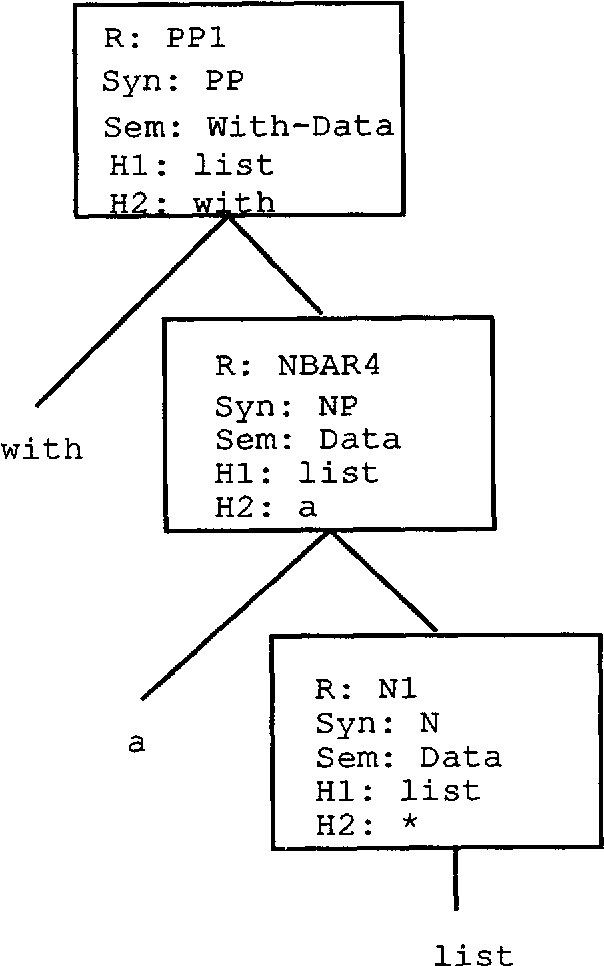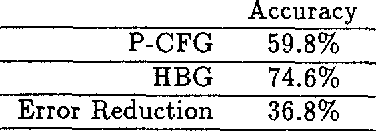Towards History-based Grammars: Using Richer Models for Probabilistic Parsing
Paper and Code
May 03, 1994


We describe a generative probabilistic model of natural language, which we call HBG, that takes advantage of detailed linguistic information to resolve ambiguity. HBG incorporates lexical, syntactic, semantic, and structural information from the parse tree into the disambiguation process in a novel way. We use a corpus of bracketed sentences, called a Treebank, in combination with decision tree building to tease out the relevant aspects of a parse tree that will determine the correct parse of a sentence. This stands in contrast to the usual approach of further grammar tailoring via the usual linguistic introspection in the hope of generating the correct parse. In head-to-head tests against one of the best existing robust probabilistic parsing models, which we call P-CFG, the HBG model significantly outperforms P-CFG, increasing the parsing accuracy rate from 60% to 75%, a 37% reduction in error.
 Add to Chrome
Add to Chrome Add to Firefox
Add to Firefox Add to Edge
Add to Edge